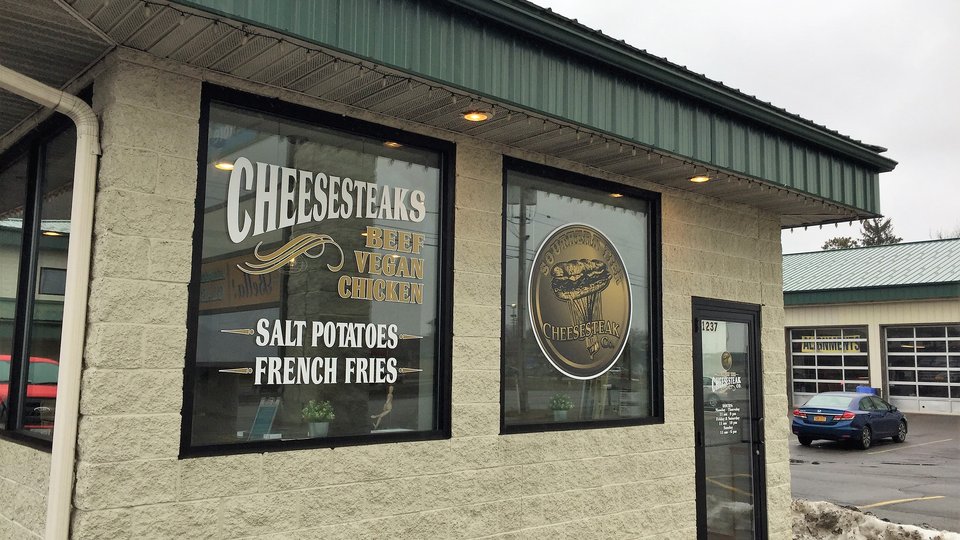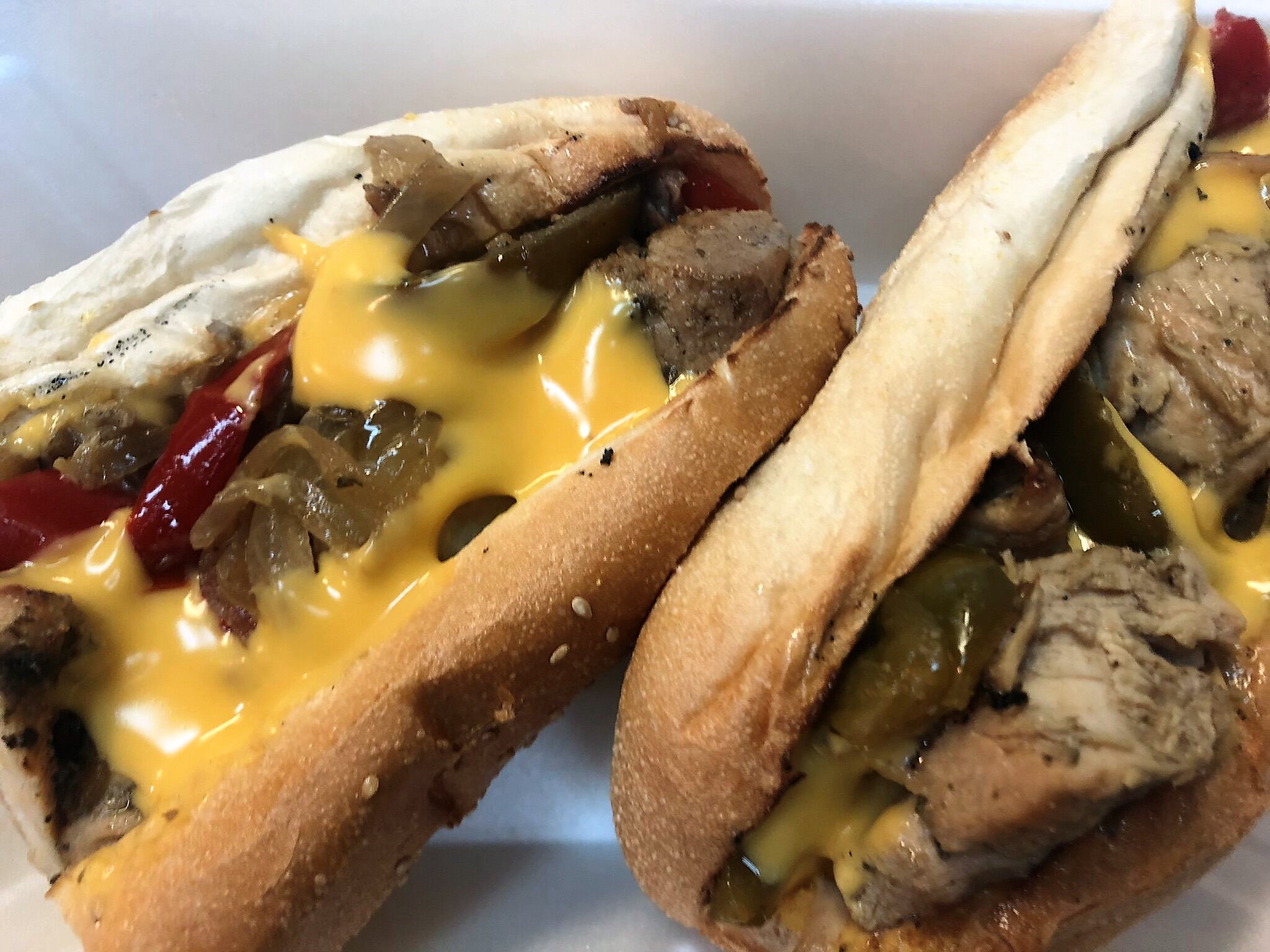Article
How a DC food truck spawned a cheese steak restaurant in south central New York
By relocating from Washington, D.C. to central New York State, a food truck operator was able to fulfill his dream of opening a brick and mortar restaurant.

November 18, 2019 by Elliot Maras — Editor, Kiosk Marketplace & Vending Times
One thing that doesn't change in business is change itself. When Nick Terzella launched his Bada Bing food truck, specializing in Italian street food, in the greater Washington, D.C. area in 2010, he estimated there were about 30 food trucks. Today, he puts that figure around 250.
When he realized the market had become saturated by 2016, Terzella, a veteran fine dining chef, revisited his long-time interest in starting a brick-and-mortar restaurant. Not only had the food truck market grown more competitive in the nation's capital, but consumers were no longer spooked by the Great Recession and were spending more money in restaurants.
So in the past year, Terzella relocated to his home town of Binghamton, New York, and opened a brick-and-mortar restaurant in addition to his food truck.
It proved to be a wise business decision. This past year, he did around $500,000 in sales, nearly a 70% increase over 2016 which had been his best year operating in the D.C. market. This year, he's on track to do at least as well.
 |
Members of the Florida Georgia Line country band appreciate the services of Nick Terzella, center. |
While Terzella's food truck gained a lucrative following among country musicians in the D.C. area, as explained in part one of this two-part series, the D.C. market had become more challenging.
The market changes
"Regulations were getting stricter," he told Food Truck Operator. "Restaurant lobbyists were working against the food trucks."
One county established zones that were off limits to food trucks. Some jurisdictions limited the amount of time a truck could park in a certain location. In one jurisdiction, food trucks were limited to one hour, which left little more than the time needed to set up and break down.
"There was no parking," he said. "Every day, you weren't sure you would be able to get a spot. Food trucks were literally parking their cars overnight, pulling in the same spot (with the truck) the next day. It became very cut throat in that way."
"I always knew that (a brick-and-mortar restaurant) was the next step," he said.
Terzella explored opening a restaurant in Arlington, Virginia, and discovered monthly storefront rents ranged between $10,000 and $15,000. So he decided to return to his home town, Binghamton, in south central New York State. He was well connected in Binghamton, and commercial property was much cheaper than in D.C.
A return to roots and a new beginning
His first move was to take his truck to a commercial strip in Birmingham. He reasoned that he would operate his food truck to raise the funds he needed to open a restaurant. However, the owner of the commercial property soon made him an attractive offer to rent a free-standing building with a drive-thru and parking.
Last April, Terzella opened Southern Tier Cheesesteak Co. in Binghamton.
The brick-and-mortar was an $80,000 investment, which included a flat-top grill on top of refrigerated drawers, a conveyor belt toaster, a charbroil grill, prep tables, a combination refrigerator/freezer, a commercial grade food processor, a pair of two-door refrigerators, a fryer and a freezer.
 |
| Nick Terzella built much of his reputation on cheese steaks. |
The restaurant, open 11 a.m. to 8 p.m. Monday through Saturday and noon to 6 p.m. Sunday, allowed Terzella to expand on his food truck menu to include a vegan cheese steak made with a wheat protein that comes in a powder.
"I add ingredients and things to it and make it into almost what looks like a meat loaf, and I roast it with a few other ingredients — different sauces and things — and it comes out tasting pretty darn close to meat," he said. He shaves the meat and cooks it similar to a cheese steak.
"That has really taken off well for us," he said for the vegan cheese steak priced at $9.99, the same as the regular cheese steak. "It didn't start out as one of the best sellers, but it has grown in popularity greatly." He credits this to the overall popularity of vegan cuisine. There is also a half sandwich for $5.49.
Customer response has been tremendous, much of which Terzella attributes to the large amount of publicity. "There was a lot of hype around me moving the business from D.C. to here," he said. The opening week alone brought in around $60,000 in sales.
Terzella ended up hiring 12 employees to meet the initial surge. For the first two weeks, he was serving 800 to 900 sandwiches per day. "We were really cranking," he said. Since then, the business has leveled off and he has pared the staff to five employees.
The food truck continues
The food truck is now used primarily for catering, staffed by restaurant employees on an as-needed basis. However, Terzella is considering a lunch route for the truck since he believes food trucks are still in an early stage of development in Binghamton. In addition to bringing in more revenue, he thinks the truck could help market the restaurant. He's also considering a second truck.
"One of the beauties of having a food truck is getting out there and getting to know your customers," he said. "On a food truck, you're interacting with your guests. It really makes it a more personal thing."
He also hopes to open a food truck in a new market. Long term, he would also like to open more restaurants.
 |
The food truck is now used mainly for catering. |
Terzella does miss the excitement of the Washington, D.C. food truck scene and its adventurous clientele. "I grew really fond of my customers there," he said.
He also misses the DMV Food Truck Association, which represented food trucks in Maryland and Virginia.
The biggest challenge Terzella has faced since relocating to Binghamton is the same one cited by most restaurant owners — finding good employees.
The best way to find employees is to focus on their attitude as opposed to their experience, he said. Hence, he looks for a willingness to learn and a passion for food.
Photos courtesy of Bada Bing/Southern Tier Cheesesteak Co.
About Elliot Maras
Elliot Maras is the editor of Kiosk Marketplace and Vending Times. He brings three decades covering unattended retail and commercial foodservice.
 ChatGPT
ChatGPT Grok
Grok Perplexity
Perplexity Claude
Claude





